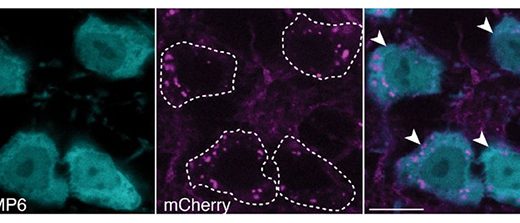
A new study by researchers at the University of California, San Francisco (UCSF), suggests that psilocybin, the hallucinogenic compound found in magic mushrooms, may help ease symptoms in people with Parkinson’s disease, the second-most common neurodegenerative disorder after Alzheimer’s.
The early-stage trial, a world first in testing psychedelics on patients with a neurodegenerative disease, showed that psilocybin was well tolerated by individuals with Parkinson’s and led to promising improvements in mood, cognition, and motor symptoms.
More To Read
“We are still in very early stages of this work, but this first study went well beyond what we expected,” said Dr Ellen Bradley, an assistant professor and associate director of UCSF’s Translational Psychedelic Research Programme.
Research on Parkinson’s disease in Kenya (population: 57.3 million, according to the Worldometer) is scant, while knowledge about Parkinson’s disease among the population is low.
Parkinson’s disease affects over one million people in the United States alone, and that number is projected to double by 2040. While current treatments can manage some symptoms, there is no cure, and no therapy yet halts the disease’s progression.
The study involved 12 participants, seven men and five women, who were each given a 10-milligram dose of psilocybin, followed by a higher 25-milligram dose two weeks later. Alongside the drug treatment, each patient participated in eight psychotherapy sessions and underwent assessments at one week and one month post-treatment.
“Physically, I feel better than I did 2-3 years ago,” said Jeff Deming, one of the study’s participants, speaking to CBS News.
The underlying science is both complex and intriguing. Psilocybin mimics serotonin, a key brain chemical that regulates mood and other functions, by binding to the same receptors. Researchers believe this interaction could explain some of the improvements observed.
Parkinson’s is often associated with serotonin dysfunction, which may also contribute to the emotional challenges many patients face.
“Many people don’t realise this, but mood symptoms in Parkinson’s are linked to a faster physical decline,” Dr Bradley noted. “And they are a stronger predictor of patients’ quality of life with Parkinson’s than their motor symptoms.”
Some participants reported side effects such as nausea, anxiety, and elevated blood pressure, but none experienced severe adverse reactions requiring medical attention.
Encouraged by the initial findings, the UCSF team is now launching a larger, more diverse clinical trial, this time in collaboration with Yale University. The expanded study, which aims to enrol 100 participants, will include neuroimaging and non-invasive brain stimulation to better understand psilocybin’s impact on the brain.
“The vast majority of brain diseases still lack interventions that change the course of illness,” said Dr Joshua Woolley, senior author of the study and associate professor at UCSF. “We can often treat the symptoms, but we don’t alter the trajectory or prevent decline. Now, that’s beginning to change. These results raise the exciting possibility that psilocybin may help the brain repair itself.”
The larger trial is being funded by the Michael J. Fox Foundation for Parkinson’s Research and an anonymous donor, offering a glimmer of hope for future breakthroughs in treating one of the world’s most challenging neurological conditions.
Other Topics To Read
This was shown first on: https://eastleighvoice.co.ke/health/151682/magic-mushrooms-may-offer-new-hope-for-patients-with-parkinsons-disease-researchers


